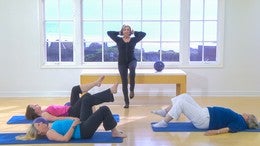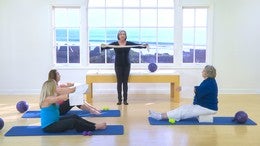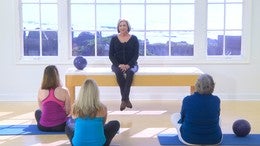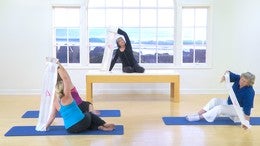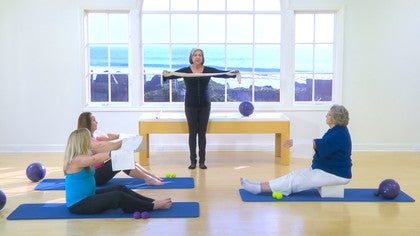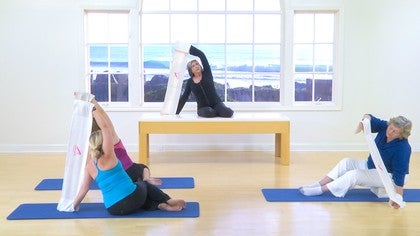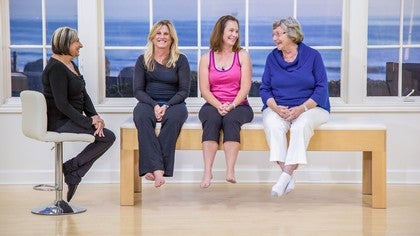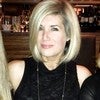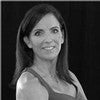Read Full Transcript
Hi there. My name's Christine Feldman and I was diagnosed with breast cancer when I was 34 years old. Went through treatment four years later and fortunate it came back then. Um, several surgeries and several rounds of chemo radiation. And I am here today cancer-free.
My Name's Nicola Master and when I was 44, my gynecologist told me that I was the youngest person in her practice who she'd ever had had alum and um, I did a single mastectomy with reconstruction and that was, I finished my surgeries maybe a year ago and a cancer free as of today. Yeah, I'm Delfin Ahmad. I'm from Santa Barbara and uh, I had cancer in 2006 and I was 70 years old at the time and I've have eight years of being cancer free right now. So I'm 78. I changed doctors from Santa Barbara and I went to Cedar Society and I and uh, Los Angeles area. I feel very comfortable with it because I really wanted a doctor that [inaudible] had compassion. I changed my mind from my recovery. I was going to go with a lumpectomy and I looked at the face of my plastic surgeon and it just kind of dropped. And so right then and there I decided, you know, I, I can change my mind. I can, it's okay.
I don't have to stick with the decision that I think was the best one really. Maybe the other decision is better. And I'm glad I made that with, I'm glad I had the full mastectomy instead of having a lumpectomy. That was a great decision, but it was difficult. The thing, okay, I'm going to change my mind now and do something that I didn't expect when I was diagnosed the first time I had to go through chemotherapy, which a lot of people have to do. Um, first off I had um, three lumpectomies and they decided they needed to do a mastectomy. So what I did is I had a full mastectomy, um, reconstruction, tram flap surgery, which, um, was over 10 hours. I had nine rounds of chemotherapy and hormone therapy and everything was going great and I was feeling good. I was bald as cue ball.
My cancer came back in my mastectomy scar, my rights guide. Um, it's one in a million that this can happen to. Um, there was, they concluded that it was a cell that flew off the scalpel in surgery and landed on the top of the skin. My name is Kathy Corey and I am here today teaching a course on postsurgical breast cancer recovery. We are, uh, have just finished a great program and I thank you for here. I think it's really quite wonderful that you have taken it. Um, taking the time to really, um, learn about your own recovery and about the whole process of uh, working towards health. I know it hasn't been easy for any of you, um, but if you could each one of you tell me a little bit about the process of getting back into range of motion, exercise and um, life in general. Um, I started myself after my second bout of breast cancer. I decided I needed to have my body work, wake up and I started exercising and it really helped with my recovery because I was able to have full range of motion and I was able to use my arm just as much as I did and a little bit better before I had cancer.
And it just made my body a lot more balanced, a lot more happy. Oh, just more successful in my daily life. That's great. Uh, I felt that, uh, it was really nice that you concentrate on the breathwork today. That's the first thing that I noticed when I was recovering that I needed to start to breathe, then open up since the chest, you know, you're so much done to your chest, curl in and so opening up and the breathing really, really helped me. That's great.
Thank you. Yes, it was very helpful today, but one of the things that I did right after I had, um, finished with the Chemo, um, I did some exercises and kept it up and from time to time I still do it, still do the exercises and this was very helpful. I enjoyed it very much. That's great. I think that one of the things that we wanted to, um, discuss here is the fact that when you have gone through, um, such a devastating process as you all have a, it is mind, body, and spirit that is affected and that we need the support physically, mentally, and spiritually through the, the, uh, process. And if you could address a little bit about your journeys, we'd love to hear it. Gosh, it's been such a long one. Um, your body is your temple and your soul and your body wants to live and it wants to breathe in. It wants to exercise. So when it's gone through a trauma and you've taken medications and surgeries, it sets it back, but it's not comfortable there and it wants to flourish.
And so I think you do your body so much goodness and your soul by allowing it to exercise and give it what it really needs and what your body wants is to be alive. Your body wants to move and your body is better and your soul is better in your brighter and you've got a full future ahead of you and it's [inaudible] it's just time to start rolling. That was great. Uh, I think, uh, you know, there's a lot that you go through and I think that uh, it's helpful to just keep working with it because it seems like you might be able to do a lot of things you did beforehand, but there's those little parts that still gets stuck. So it was nice to take it back and feel like some of the tingling maybe in the area that I thought was loose or hot overcompensating, sort of, kind of looking at just keep, keep going and knowing that there's still more hailing to do as you go on. I have to say that I think I found my journey very interesting. I had an awful lot of support from my family, from my daughter and son in law and their kids and all my friends and between all of them, they encouraged me to do exercises.
They helped me out and they were there for me all the time. Oh, that's so wonderful because I do think that support is really, really important that we have to address the whole body and that it goes far beyond. Uh, just kind of getting back to what we are doing. And one of the things that we explored with this program is not uh, just trying to get back into health, but you really look at taking it another step deeper into our own bodies, into the consciousness of where we are working from with new body awareness as well. Um, how has that affected you? Well, um, I think one of the most important things that we need to look at as people as in human beings is really be aware of your body. Your body is, we'll tell you and what's what it's going on with. And you have to listen to your body.
You have to listen to your aches and pains and doing programs like what we did today really alerts you on how your muscles are responding and what's going on in your body. And you just need to be conscious of your body and pay attention to what your body is trying to tell you and um, and it can save you and you will have a much more fulfilled life when you can move your muscles better and you, you have much more range of motion. Like you said, it's great realizing how much you overcompensate for an injury and how the injury does sort of like the whole body reacts to the injury and tries to make it better. And so you have to work and make sure that you're not overcompensating to hurt yourself further, but to actually open it all up and exercise even the side that's overcompensating possibly to get back to the regular flow of your body. Yeah.
I feel that you have to continually remind yourself to keep going, to find things that you need to do or should be doing and try not to spend too much time thinking about it more like doing things. Uh, in general, is there any other guidance, advice, um, things that you would like to offer to people who may be experiencing this and really not feeling that they're going to get through it? Oh, you'll get through it. It's a long road. I, I can't, I can't deny that it's a long road. Um, as many hills and valleys as there are, there's a lot of good that will come out of it as well that will be behind those closed doors. Um, what I found with myself personally, it was a lot of personal growth, um, that I had to find the strength that I had in myself. I didn't think I was strong enough to get through it. I, um, I had a lot of support from families and friends, but you have a choice. You can sit on the couch and feel sorry for yourself or you can get up and do something about it. Um, I had two small children and I decided that I wasn't doing myself or anybody else any good for feeling sorry for myself and sitting on the couch.
As much as that sound a lot easier, as hard as it was to get off the couch. Um, I'm much better for it today. Oh, I think when you're first diagnosed it's very confusing. There's so many doctor's appointments and there's a lot of decisions to make about what you're going to have and I'd say reach out, throw your net wide and try and talk to people who've gone through it because there are I think some better options and your doctor's going to give you the whole range. But you know, you might talk to someone who says, I'm definitely glad I did this or I wish I did that. And I think it will help guide you through the decisions that you have to make. Hi, I agree with that.
I think you need to really reach out to people that the other thing I feel and I learned as you cannot panic. That's one of the things that you should not do. I am involved with a, there are eight of us that met at the cancer center when we were going through our bed stages you might say. And we are still together today and we go out for every, um, Monday, second Monday of the month we call ourselves the pink Mafia. Okay. That's great.
And can you tell us the greatest lesson that you've learned through this experience? My greatest lesson is, um, to have a better perspective on life at a perspective on people. Um, I think I'm a little bit, um, I don't, I don't wait as much as I used to. I get things done when I should be getting things done. Um, I people ask this question all the time, um, and I find any things that could pop up all the time that I'm like, gosh, that's really good. Um, what I do, and this is gonna sound a little silly, but what I really love and I really cherish is, um, fresh air. Um, I can breathe and, um, when I get up in the morning and I can breathe and I can breathe the fresh air and it's clean and it's full of life, and it is the oxygen that goes through our bodies to make us live. And I appreciate that every day. I feel very humble.
I would agree with that. I think I feel that way too. But I also learned a lot of patience, patience, patience, patience. Well, I think that's just absolutely great with great lessons from all of you. Well, it was certainly my pleasure getting to meet and know you today and I, um, I am certainly inspired by what we've accomplished, what you've accomplished, and, um, just, um, it is really quite, uh, a wonderful thing what you are doing and your great journey. Thank you. Thank you.
